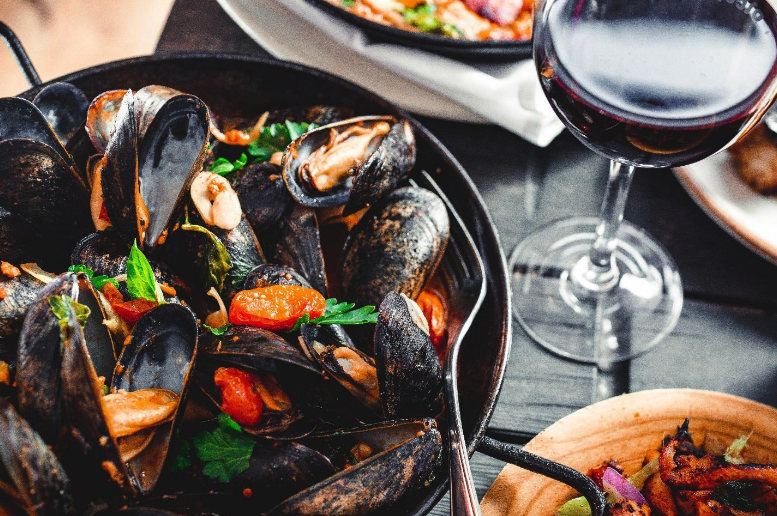Swimming Upstream: The Venetian Resort Las Vegas Navigates Sustainable Seafood with New Partner FishWise

On World Oceans Day, The Venetian Resort Las Vegas announced a sustainable seafood partnership with FishWise, an innovative and solutions-driven industry leader providing data-driven market tools and expertise in sustainability, human rights action, and traceability best practices.
Since the partnership began earlier this year, they have assessed more than $2 million dollars in seafood spend and identified 53 unique species from 18 source countries in the resort’s assortment. Working with the resort’s food and beverage, and procurement team, as well as key seafood suppliers has been critical to understanding product origin and building a more transparent seafood supply chain.
The next phase of the project will look towards leveraging this information to develop an ambitious procurement strategy, including improving sourcing practices, training staff, and engaging suppliers.
So what makes seafood sustainable? Here, FishWise Project Director and lead for The Venetian partnership, Erin Taylor, discusses the state of the seafood industry, while offering some insightful tips on how we all can make better seafood choices.
Q: What are some quick facts we should know about seafood and sustainability?
Many of the world’s fisheries are overfished, meaning we are catching fish at such a high rate, fish populations cannot keep up! The United Nations estimates that 60% of global fish stocks are ‘fully exploited’ and 33% are estimated to be ‘over-exploited.’
Q: Farmed or wild-caught? Which is more sustainable?
The catch with seafood is that the answer is almost always: it depends. Neither farmed nor wild-caught seafood is inherently more sustainable than the other.
Most commonly, seafood is considered sustainable when it is caught or farmed in a way that reduces impact to the environment and ensures resource longevity. Beyond environmental considerations, sustainability must extend to people as well. When producers, coastal communities, and seafood businesses are thriving along with the environment, then seafood--whether farmed or wild--is more holistically sustainable.
Q: Are there any types of seafood that are generally more or less sustainable than others?
Despite the complexity of seafood, you don’t have to be a fisheries scientist to make better choices in your fare. There are a couple rules of thumb that can be useful to orient toward the good stuff.
First, consider the size. Species that are large, like tuna, grouper, and swordfish, often take a long time to grow and reproduce less quickly, making them more vulnerable to overfishing. This is in contrast to smaller, fast-growing species, like squid, mackerel, or anchovies.
Overall, one of the more foolproof types of seafood is farmed shellfish (think: mussels, clams, and oysters). These critters require few resources to grow and can have a net positive impact on the environment given their filtering superpowers. So get shucking!
Q: What can we do as individuals to eat seafood more sustainably?
The best place to start is to ask questions. Whether you’re at the grocery store or a restaurant, ask seafood counter staff or waiters: 1) What species is it? 2) How was it caught or farmed? 3) Where is it from? These questions send an important signal to businesses that consumers care about the sustainability of their food. For a deeper dive into smart seafood options, use a consumer guide. There are many online guides that offer country-specific advice; try Seafood Watch and World Wildlife Fund.
Next: diversify! There are over 12,000 seafood species on the market globally, but we tend to eat the same few over and over. In the United States, for example, just 10 species account for 84% of total seafood consumption. Trying something new helps reduce demand for the usual suspects. Finally, spread awareness amongst your own friends and family. Seafood holds an amazing story; just like a fine wine or artisan cheese, there is a richness to its origins that should be known and appreciated. Seeking out that story--and opting for the more sustainable one--is the best way we can help ensure a healthy supply of seafood now and in the future.
Please visit www.sands.com/sands-eco-360/our-vision.html for more information on Sands ECO360 initiatives.

